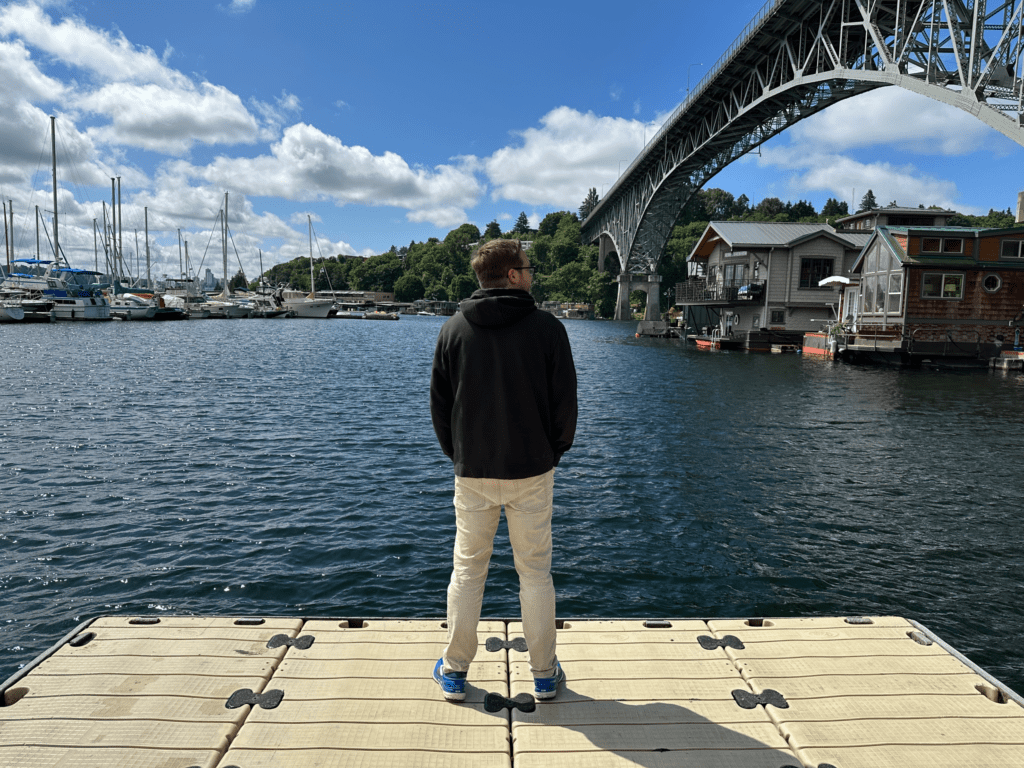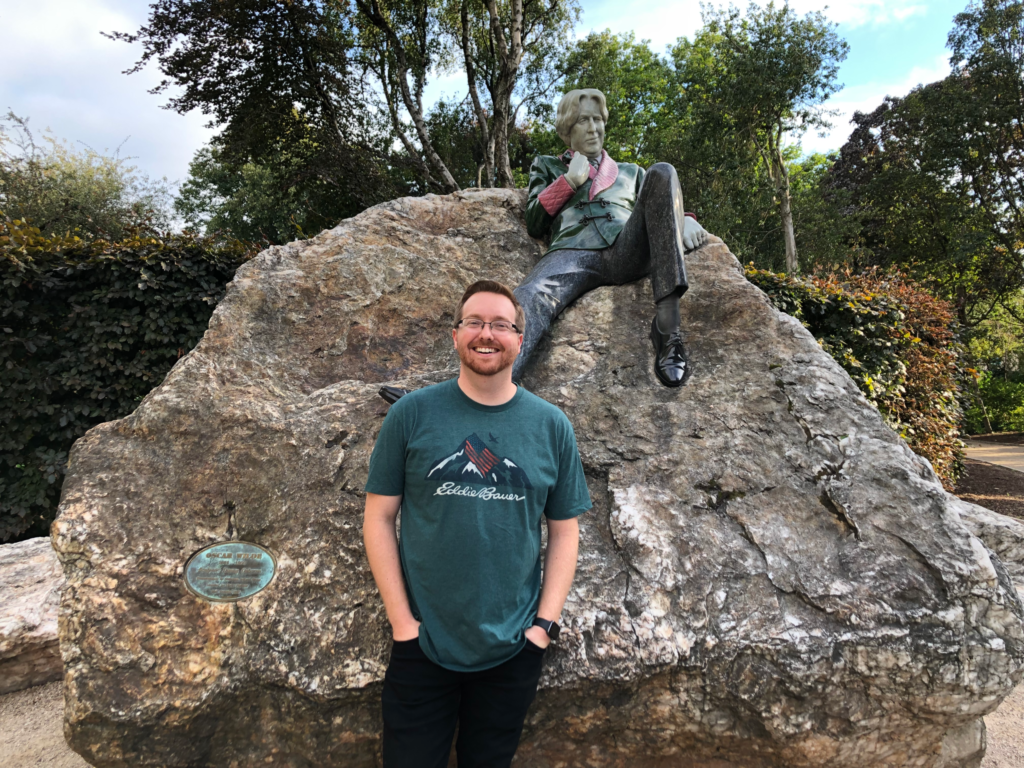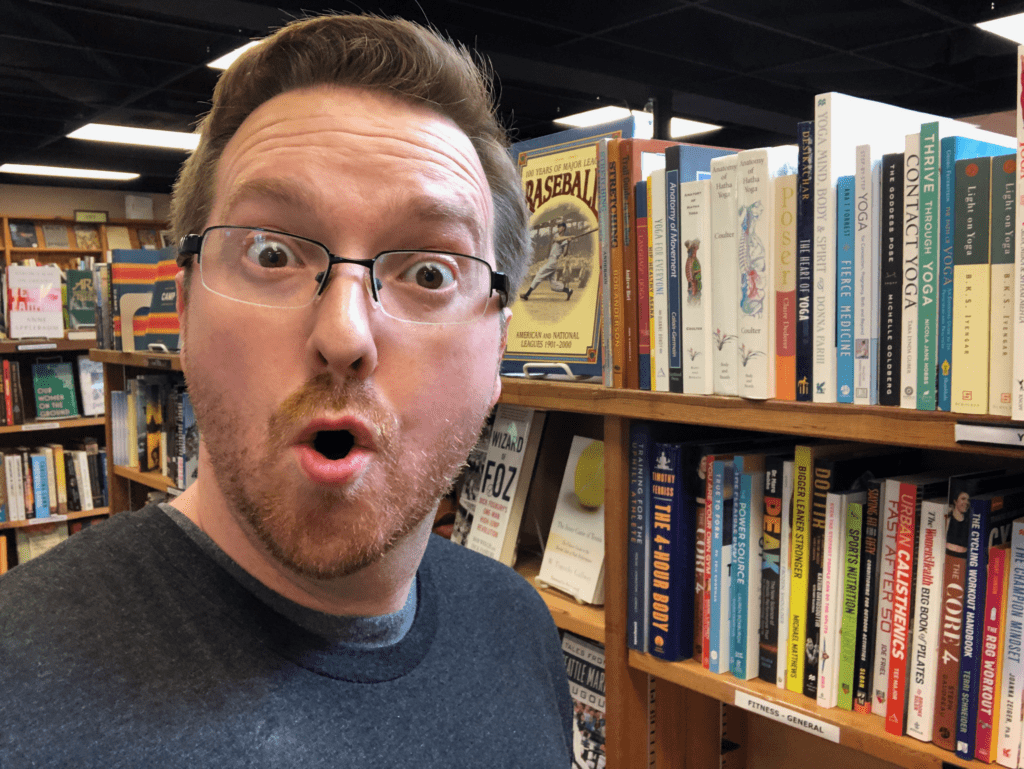36 Lessons I Wish I Could Teach My 20-Year-Old Self, Looking Back on the Past 36 Years

Today I turn 36. If I had a time machine, I’d travel back to share these 36 lessons with my 20-year-old self…
Don’t put your identity in your work. Jobs come and go, and they can sometimes beat you up. Rather than viewing your job (or job title) as your identity, view it as clothes that you put on and take off. Your job isn’t who you are—it’s just what you’re “wearing” right now. What you actually are is the collection of all of your thoughts, skills, virtues, and relationships.
Begin etching your tombstone: become known for something. When friends introduce you to someone new, they’ll often share one tidbit about you. What do you want that tidbit to be? Build your life in a way that supports that desired identity.
View every minute of every day as an investment. You decide whether to invest it in reading, building relationships, watching tv, doom-scrolling, etc. Which investments do you think will pay off the most?
Be efficient with processes and effective with people. Efficiency is best applied to systems and processes—not humans. In every relationship, focus on quality and authenticity rather than quantity and productivity.
Spend time with people you want to “look like” in five years. As author Charlie ‘Tremendous’ Jones said, “What you will become in five years will be determined by what you read and who you associate with.”
Less certainty, more inquiry. I have unmade-up my mind about many things in the past 15–20 years. It’s funny looking back at how confident I used to be about topics I now think either (A) don’t matter or (B) don’t have a right answer. Embrace doubt and curiosity rather than correct answers.
Everything is gray area. My buddy Cris says this all the time, and I agree. I used to see so many things in absolutes, but I’ve realized that many things depend on circumstances. The same decision can be 100% correct in one situation and 100% incorrect in a slightly different situation.
Run toward the fire. If you do the things that scare you, you’ll simultaneously develop skills, confidence, character, and reputation. Use fear as a compass that points toward what will teach you the most.
Every skill feeds others. Mental health builds physical health, and vice versa. (Example: Developing mental toughness helps you run further, and running further helps develop mental toughness.) Similarly, improving empathy improves leadership, and vice versa. Everything is connected.
Get 1% better every day. James Clear did the math for all of us in his book Atomic Habits—if you get 1% better at a skill every day for one year, you’ll be 37 times as good at that skill at the end of the year. Small changes lead to massive progress.

Everyone is on a different timeline. It’s easy to look at someone else and think, “They’re my same age and they’ve accomplished so much more than me.” But every person’s life, situation, and timeline is different. You’re doing just fine.
Focus on step #1. Big, hairy, audacious goals are scary. The best way to accomplish something huge is to forget about steps 2 through 100. Just identify step #1 and complete it. Only then should you worry about step #2.
Implement the 20-mile march. Explorer Roald Amundsen led the first successful expedition to the South Pole. His secret? His team steadily marched 20 miles per day, regardless of the weather. Dogged consistency helped Amundsen defeat rival explorer Robert Falcon Scott, whose team sometimes didn’t make any progress if the weather was poor. Whatever skill you’re trying to develop, focus on making progress every single day.
Follow your curiosity. More inventions were discovered through raw curiosity than the desire to make money. If you’re curious about something, go learn about it. You have more knowledge at your fingertips now than at any previous time in history (TED talks, MasterClasses, books, articles, podcasts, the Internet, etc.).
Become known as the question-asker, not the answer-giver. Questions are the keys that open doors and unlock insights in conversations. A question that is 20% better can often yield an answer that is 200% better. Take the time to find the better question.
Don’t bridle your passions. It’s better to be the weird guy who knows what he likes than to be the “cool” guy who’s always looking over his shoulder to determine what others think. Follow your random passions and interests. Own them. Wear them.
Desire less. As Seneca said, “Being poor is not having too little, it is wanting more.” Stop playing the foolish game of thinking, “I’ll be happy if I buy a new house, write a bestselling book, save up enough money to retire, blah blah blah.” You’re perfectly “rich” right now if you stop wanting more things. Material goods don’t cause happiness.
Give others your undivided attention. Our society lives in a constant state of “continuous partial attention” (term coined by Linda Stone). When was the last time someone fully paid attention to you without checking their phone? Give that small but powerful gift to others.
Focus is a superpower. In a world of nonstop distractions, you’ll stand out in work and in life if you can maintain focus on a single task. Become a relentless single-tasker and you’ll see your productivity skyrocket.
You control your reality. “Our life is dyed by the color of our thoughts,” said Marcus Aurelius. It’s your choice how to respond to difficult situations. There is a gap between stimulus and response. You get to choose how to fill that gap.

Become a person defined by action. “Waiting on the world to change” doesn’t work. Situations don’t improve on their own. If you run into a roadblock, plow through it. If you have a problem with someone, give them feedback. If you want something to be different, become the difference.
Impatient with actions, patient with results. Don’t wait to act, but don’t assume that action will always produce an immediate impact. Change takes time, and the most important changes often take the longest (overcoming an addiction, losing weight, building your character, etc.).
When building a habit, five minutes is enough. The difference between not working out versus doing 20 pushups is enormous. Same with not writing anything versus writing for five minutes. The funny thing is, the difference between doing the task for five minutes versus five hours isn’t actually that big when it comes to building the habit. But the difference between zero minutes and five minutes? Fucking huge. Just don’t put up a zero. Long streaks begin by starting small.
Take a walk every day. Spending time in nature offers endless benefits: lower stress, increased relaxation, increased happiness, lower blood pressure, better sleep, etc. I find that a 30-minute walk every afternoon recharges me to finish my work day strong and more fully enjoy my day.
Try to view yourself as a third-party observer would. Self-reflection is more powerful if you can override the gut reflex to defend your actions or regard yourself as the hero of every story. Strive to view your actions the way a neutral observer would: What would an objective journalist write about what you did?
Launch an “MVP” whenever possible. Rather than building a fully-fledged solution, most startups opt to build a “minimum viable product” (slimmed-down version of the idea) to test whether the concept works and gather initial feedback. You can use this same principle for almost anything in life.
Look at the safe water while paddling. Kayakers are supposedly more likely to wipe out if they focus on the gnarly rapids (what they DON’T want to paddle through) than if they focus on the smooth water (what they DO want to paddle through). The same principle applies in life. Focus on what you want to happen rather than on what you don’t want to happen.
Live for all seven days — not just the weekend. Don’t complain about Mondays. It’s fine to get excited on Fridays because you’re about to have two days off, but if your work is so awful that you feel the need to complain every Monday, find another job. Life is too short.
Use setbacks to practice virtues. Didn’t get the job you wanted? You get to improve your resume. Break a bone? You get to practice discipline to heal your body. Fail at something? You get to practice mental toughness. Every failure is a chance to develop a new facet of your character or abilities.
Honey is sweeter than vinegar. Is there someone who seems to dislike you? The best way to win them over is to treat them like a mentor. Ask for their advice. They’ll think you must be smart for seeing how smart they are, and they’ll come to love you for it.

Write with your pen, not your mouth. This applies to any endeavor. Don’t brag about something before you’ve done it, like posting a picture of your running shoes on Instagram when you begin training for an Ironman. Put in the work first. Don’t get high on kudos you don’t yet deserve.
“Hard choices, easy life. Easy choices, hard life.” Olympic weightlifter Jerzy Gregorek teaches that discipline (short-term difficulty) actually leads to happiness and freedom (long-term ease). This goes for investing, exercising, dieting, and a host of other life choices.
Steal good ideas. It took me a long time to realize that every successful person I knew was a perpetual purloiner of other people’s powers. Austin Kleon’s book Steal Like an Artist helped me realize that imitation isn’t just the sincerest form of flattery, it’s also what drives innovation.
Failure is necessary. Whenever I make a big mistake, I remind myself of Winston Churchill’s (attributed) quote, “Success consists of going from failure to failure without loss of enthusiasm.” Failure—both large and small—is normal. What matters is what you do next.
Determine what you were put on this planet to do. My life made way more sense once I unearthed my deepest passion (helping people develop into better leaders and learners). It took a lot of introspection to hit that realization, but it’s given me more focus and happiness because I can now choose hobbies, jobs, and projects that align with that passion.
Bring heaven to earth. Some of the most selfish people I know are the ones who are focused on reaching heaven in the afterlife. Some of the least selfish people I know are those who are focused on helping people experience heaven here on earth (feeding the hungry, caring for the needy, etc.). You bring heaven or hell to others by your actions in the here and now.
Alright, those are my 36 lessons. Now, does anyone have a time machine I can borrow? Twenty-year-old Bobby would be infinitely grateful.




Happy Birthday! If I could go back and advise my 20 year old self I’d include on my list: to hold friends closer/work at communication over the years (before Facebook); laugh at myself more often; plan more fun days close to home and execute them; take interest classes at the CC like art, birding, languages. Be better about remembering birthdays. Hope yours was happy!